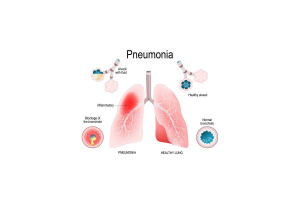The CDC has detected a potential toxin of concern in vape juice which is vitamin E acetate.
When inhaled, vitamin E oil coats the inside of the lungs. It is of note that most patients with lung injuries reporting smoking THC in addition to nicotine.
Vaping has become an extremely popular alternative to smoking in the last few years, especially in younger generations. While vape may not have the same adverse effects as cigarettes—blackened lungs, cancers, and more—over 2,000 severe vape-related lung injuries indicate that it’s definitely not harmless.
The Center for Disease Control has detected a “potential toxin of concern,” according to Dr. Anne Schuchat, the CDC’s principal duty director. This toxin is vitamin E acetate, which is a synthetic vitamin E oil used in vape juice.
Vitamin E acetate was in all 29 samples. What’s more, no other oils present in vape juice were found in notable levels. Vitamin E oil is healthy to apply topically and even to eat, but when inhaled, it coats the inside of the lungs.
While this new finding is promising in narrowing down the effects of vaping, most of the patients with lung injuries also reported smoking THC in addition to nicotine. The majority of healthy vape users—94% of them—report using only nicotine. Thus, the problem remains complicated and not completely understood. Increased regulation is still on the way to try to combat illnesses associated with using vape products, but science still has a way to go in researching this form of drug use.

A THCA vape is a device used to vaporize THCA-rich cannabis extracts. These vapes heat the THCA just enough to create vapor, but not so...
Read More
Symptoms of Pneumonia Pneumonia can be mild or severe, and symptoms include: • Trouble breathing • Chills...
Read More
Pneumonia can be a scary disease, but fortunately, most people with the condition will have a mild illness and recover without complications. The disease, which...
Read More
Over the past few years, it seems that CBD use has exploded. This is likely due to CBD’s ability to help with a wide variety...
Read More
Smoking cigarettes is the most preventable cause of death in humans, and taking CBD oil for nicotine addiction can help reduce cravings and symptoms of...
Read More
Lung cancer is one of the most common forms of cancer. Chemo treatment produces harsh side effects, but CBD can help. Can it also help...
Read More
Recent changes in legislation have created vast opportunities for hemp and CBD. Studies abound regarding CBD as an emerging therapy and its health benefits for...
Read More
Vaping is the inhaling and exhaling of an aerosol (vapor) generated by an electronic device commonly referred to as an e-cigarette. Vaping gets its name...
Read More